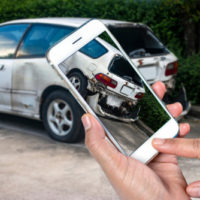The Top Four Car Crash Causes In Port St. Lucie

Human error is responsible for over 90 percent of the car crashes in Florida. While it’s true that almost all car crashes are unintentional, all individuals must face the consequences of their mistakes. In this context, those consequences include legal liability.
It’s important to develop a theory of the case that resonates with the jury. If the theory is relatively easy to follow, the jury is more likely to award maximum compensation. In a serious injury crash, that compensation includes money for economic losses, such as medical bills, and noneconomic losses, such as pain and suffering.
Alcohol
Mostly because it inhibits concentration, slows reaction time, and impairs judgment, alcohol is a factor in about a third of the fatal crashes in Port St. Lucie. But there is another consideration as well. The effects of alcohol begin with the first drink, in most cases. So, a tiny amount of alcohol often creates a significant amount of impairment.
The low standard of proof in Florida negligence cases comes into play here. Victim/plaintiffs need only prove impairment by a preponderance of the evidence (more likely than not). So, if the tortfeasor (negligent driver) visited a place that served alcohol prior to the crash, it’s more likely than not that the tortfeasor was also impaired.
Speed
Excessive velocity increases the risk of a collision and also increases the severity of a collision in Port St. Lucie.
Speed multiplies stopping distance, which is the distance required for a car to safely stop. At 30mph, most passenger vehicles travel about six car lengths between the time the driver sees a hazard and stops the vehicle. At 60mph, stopping distance multiples to eighteen car lengths, in most cases.
Excessive velocity also transforms lose objects into high-speed projectiles. If a car moving 60mph suddenly stops after a collision, the cell phones, books, and other items in the car keep travelling at 60mph until they hit something solid. That “something solid” is often a person’s head.
Distraction
In addition to serious injuries, the aforementioned cell phones also cause a significant number of crashes. Hand-held cell phones combine all three types of distracted driving, which are:
- Cognitive (taking one’s mind off driving),
- Visual (taking one’s eye off the road), and
- Manual (taking one’s hand off the wheel).
Hands-free cell phones may even be more distracting. They still involve two of the three types of distraction. Plus, they give many drivers a false sense of security.
Florida has a very weak cell phone law. So, distraction-related negligence is not always easy to prove in the Sunshine State. Typically, the victim/plaintiff needs to show that the tortfeasor extensively used his/her cell phone or was otherwise majorly distracted.
Fatigue
In terms of driver attitudes, fatigue is a lot like distraction. Most people agree that it is dangerous to use a cell phone while driving or drive while drowsy. Yet most people admit that they use their phones behind the wheel or that they drive while sleepy. A number of people admit that they have actually fallen asleep while driving.
In terms of effect, fatigue is a lot like alcohol. Driving after eighteen consecutive awake hours is like driving with a .08 BAC.
Reach Out to Assertive Lawyers
Most of the car crashes on the Treasure Coast have a few common causes. For a free consultation with an experienced personal injury attorney in Port St. Lucie, contact Eighmie Law Firm, P.A. We do not charge upfront legal fees in negligence cases.
Resource:
cyberlaw.stanford.edu/blog/2013/12/human-error-cause-vehicle-crashes
